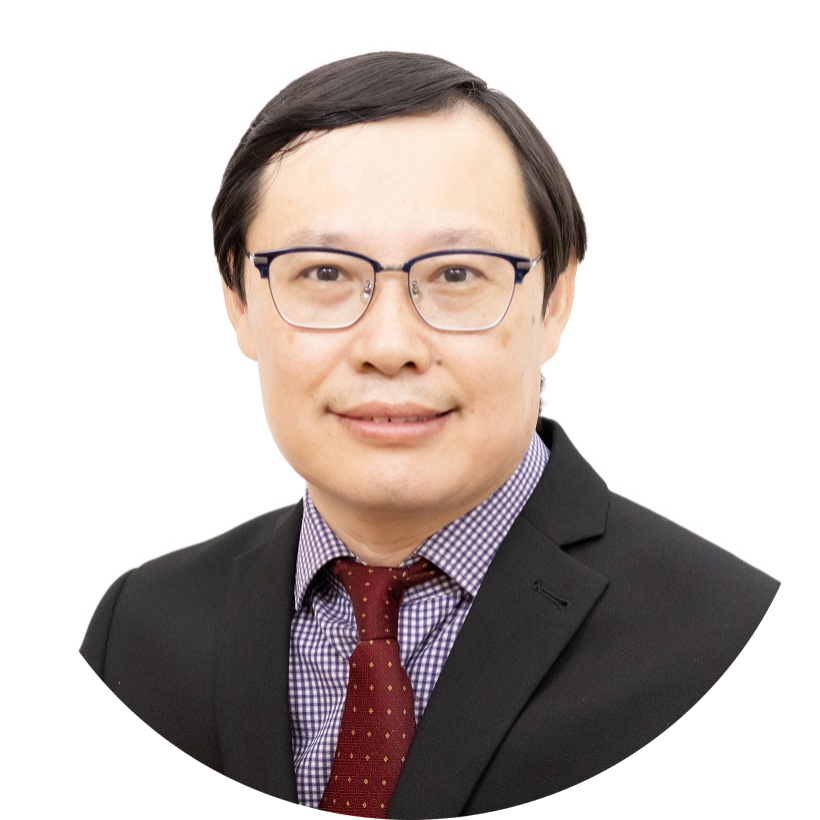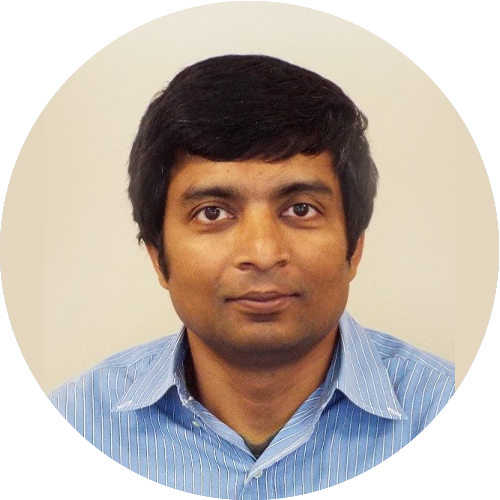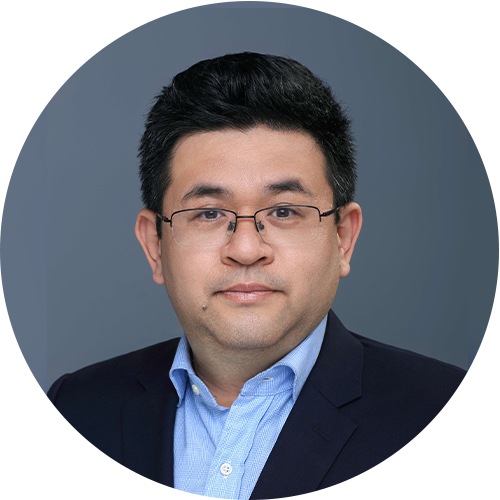Prof. Latifur Khan
Fellow of IEEE, IET,
BCS
University of Texas at Dallas (UT Dallas), USA
Speech Title:
Semi-Supervised Learning, Life Long Learning and
Scalable Spatio-Temporal Graph Neural Networks for Social
Good
Abstract: In this presentation, I will focus on Semi-supervised learning, lifelong learning and spatio-temporal forecasting.
With regard to semi-supervised learning, various efforts have been proposed for reducing the annotation cost when training Deep neural networks (DNN). Semi-Supervised Learning (SSL) is one of the solutions that has been provably handy in leveraging unlabeled instances to mitigate the efficacy of the DNN model’s performance and has been attracting an increasing amount of attention in recent times. In this work, our main insight is that semi-supervised learning can benefit from the recently proposed unsupervised contrastive learning approach, which aims to achieve the positive concentrated and negative separated representation in the unlabeled feature space. Herein, we introduce MultiCon, a semi-supervised learning paradigm that aims at learning data augmentation invariant based embedding. Experiments on multiple standard datasets including Covid19 Chest X-ray images, and CT Scans demonstrate that MultiCon achieves state-of-the-art performance across existing SSL benchmarks. In addition, we will demonstrate how semi-supervised learning can be used to identify Choroidal Tumors in Fundus Photographs and find vulnerable functions in application libraries.
With regard to lifelong learning, we will monitor conflicts and political violence around the world by analyzing volumes of continuous or stream specialized text on a global scale. To help advance research in political science, we introduce ConfliBERT, a domain-specific pre-trained language model for conflict and political violence. We first gather a large domain-specific text corpus for language modeling from various sources. We then build ConfliBERT using two approaches: pre-training from scratch and continual pre-training to facilitate lifelong learning. For incremental/continual learning, deep learning models should be able to learn new information while retaining previously learned skills or knowledge, but catastrophic forgetting does happen and we will address that in this talk.
Time series forecasting with additional spatial information has attracted a tremendous amount of attention in recent research, due to its importance in various real-world applications in social studies, such as conflict prediction and pandemic forecasting. Conventional machine learning methods either consider temporal dependencies only or treat spatial and temporal relations as two separate autoregressive models, namely, space-time autoregressive models. Such methods suffer when it comes to long-term forecasting or predictions for large-scale areas, due to the high nonlinearity and complexity of spatio-temporal data. In this talk, we describe how to address these challenges using spatio-temporal graph neural networks.
*This work is funded by NSF, NIH, ARMY, ONR, and NSA. The work (ConflictBERT) is in collaboration with Dr. Patrick Brandt and Dr. Jennifer Holmes, School of Economic, Political and Policy Sciences, UT Dallas.
Bio: Dr. Latifur Khan is currently a full Professor (tenured) in the Computer Science department at the University of Texas at Dallas, USA where he has been teaching and conducting research since September 2000. He received his Ph.D. degree in Computer Science from the University of Southern California (USC) in August of 2000. In addition, he received his bachelor degree in Computer Science and Engineering (CSE) from Bangladesh University of Engineering and Technology (BUET) with first class honors (2nd position). Dr. Khan is a fellow of IEEE, IET, BCS, and an ACM Distinguished Scientist. He has received prestigious awards including the IEEE Technical Achievement Award for Intelligence and Security Informatics, IEEE Big Data Security Award, and IBM Faculty Award (research) 2016. Dr. Khan has published over 300 papers in premier journals and prestigious conferences. Currently, Dr. Khan’s research focuses on big data management and analytics, data mining and its application to cyber security, and complex data management including geospatial data and multimedia data. His research has been supported by grants from NSF, NIH, the Air Force Office of Scientific Research (AFOSR), DOE, NSA, IBM, and HPE. More details can be found at www.utdallas.edu/~lkhan.
Prof. Hongzhi Wang
Head of Massive Data
Computing Center and Vice Dean of the Honors School of
Harbin Institute of Technology
Secretary General of ACM
SIGMOD China
Harbin Institute of Technology, China
Bio: Hongzhi Wang, Professor, PHD supervisor, the head of massive data computing center and the vice dean of the honors school of Harbin Institute of Technology, the secretary general of ACM SIGMOD China, outstanding CCF member, a standing committee member CCF databases and a member of CCF big data committee. Research Fields include big data management and analysis, database systems, knowledge engineering and data quality. He was “starring track” visiting professor at MSRA and postdoctoral fellow at University of California, Irvine. Prof. Wang has been PI for more than 10 national or international projects including NSFC key project, NSFC projects and National Technical support project, and co-PI for more than 10 national projects include 973 project, 863 project and NSFC key projects. He also serves as a member of ACM Data Science Task Force. He has won First natural science prize of Heilongjiang Province, MOE technological First award, Microsoft Fellowship, IBM PHD Fellowship and Chinese excellent database engineer. His publications include over 200 papers in the journals and conferences such as VLDB Journal, IEEE TKDE, VLDB, SIGMOD, ICDE and SIGIR, 6 books and 6 book chapters. His PHD thesis was elected to be outstanding PHD dissertation of CCF and Harbin Institute of Technology. He severs as the reviewer of more than 20 international journal including VLDB Journal, IEEE TKDE, and PC members of over 50 international conferences including SIGMOD 2022, VLDB 2021, KDD 2021, ICML 2021, NeurpIS 2020, ICDE 2020, etc. His papers were cited more than 2000 times. His personal website is http://homepage.hit.edu.cn/wang.

Assoc. Prof. Mao Kezhi
School of Electrical & Electronic Engineering
Nanyang Technological University, Singapore
Bio: Dr. Mao obtained his BEng, MEng and PhD from Jinan University, Northeastern University, and University of Sheffield in 1989, 1992 and 1998 respectively. Since obtaining his PhD, he has been working at School of Electrical and Electronic Engineering, Nanyang Technological University, Singapore, where he is an Associate Professor. Dr. Mao has over 20 years of experience in artificial intelligence, machine learning, image processing, natural language processing, and information fusion. He has published about 100 scientific papers in the field. His research is recognized in the Top 2% Scientists Worldwide 2021 in a study from Stanford University, where his research in AI is ranked at top 0.5%. As a strong advocate of translational research, he has successfully developed and delivered several intelligent systems and tools to government agencies and industries. Besides research and development work, Dr. Mao has been conducting consultancy work and training courses in the field.

